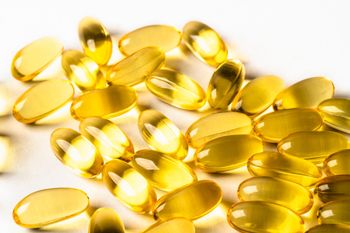
Hoodia Supplementation May Support Weight Loss: Consumer Trial
The study found that hoodia may reduce weight, waist circumference, and BMI.
Weight-loss and appetite-suppression products containing hoodia (Hoodia parviflora) may have become more popular over the past decade, but some have complained about a lack of human research to support the ingredient’s supposed benefits. However, a consumer study recently announced by Desert Labs Ltd. (Kibbutz Yotvata, Israel) offers a promising new look at hoodia’s potential to support weight loss.
Researchers from Desert Labs conducted the randomized, single-blind, placebo-controlled study in New York City, where 204 individuals aged 18-64 volunteered to take a frozen cube containing either hoodia or a placebo for 40 days. The 3-g cubes also contained natural lemon juice concentrate, steviol glycosides, and conditioners.
The weight of the volunteers ranged from normal to obese, with no attempt made to intervene in lifestyle behaviors. At the beginning and end of the study, the participants were measured for weight, waist circumference, and body mass index (BMI). Additionally, on days 1, 10, and 40, the participants completed a questionnaire on food consumption, hunger development, efficacy of the product, well-being, and incidence and control of food cravings.
Of the 204 participants who reported for the first day of the trial, 103 actually completed the study-a 49% withdrawal rate. Although the researchers conceded that this rate is “significantly higher than average for clinical trials,” they did note that the dropout rate was statistically similar across both the placebo and experimental groups.
Among those who did complete the trial, the results were promising. The researchers found that the hoodia group experienced a statistically significant reduction in weight, waist circumference, and BMI when compared with the placebo group.
Yet among individuals with a BMI greater than 35 kg/m2, there was no statistically significant treatment effect compared to the placebo. The qualitative analysis was inconclusive, with both the hoodia group and the placebo group claiming to be eating less than before the study.
Five participants reported a total of eight treatment-emergent adverse effects, although the researchers said the events were mild and of limited duration. These included headaches, stomach cramps, indigestion, heartburn, and nausea.
But the generally promising findings of hoodia’s effect on weight loss may open the door for further clinical studies.
“These results support the use and further study of H. parviflora in products to aid weight loss and maintenance and possible appetite suppression in healthy adults,” wrote the researchers.
Hoodia from Desert Labs currently has GRAS status in the United States. It is distributed by Barrington Nutritionals (Harrison, NY).
Landor M et al. “Efficacy and acceptance of a commercial Hoodia parviflora product for support of appetite and weight control in a consumer trial.” Journal of Medicinal Food, vol. 18, no. 2 (February, 2015): 250-258
Read more:
Michael Crane
Associate Editor
Nutritional Outlook Magazine
Photo © iStockphoto.com/energyy
Newsletter
From ingredient science to consumer trends, get the intel you need to stay competitive in the nutrition space—subscribe now to Nutritional Outlook.





